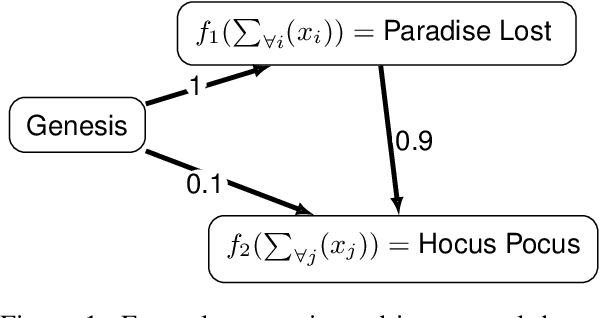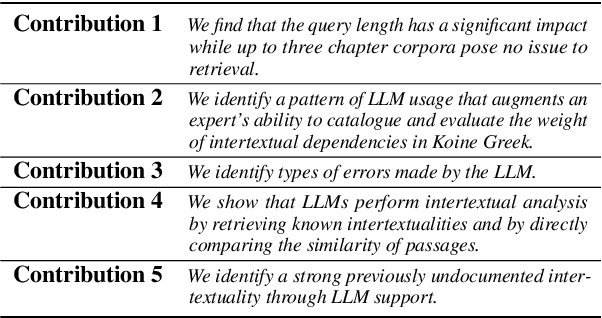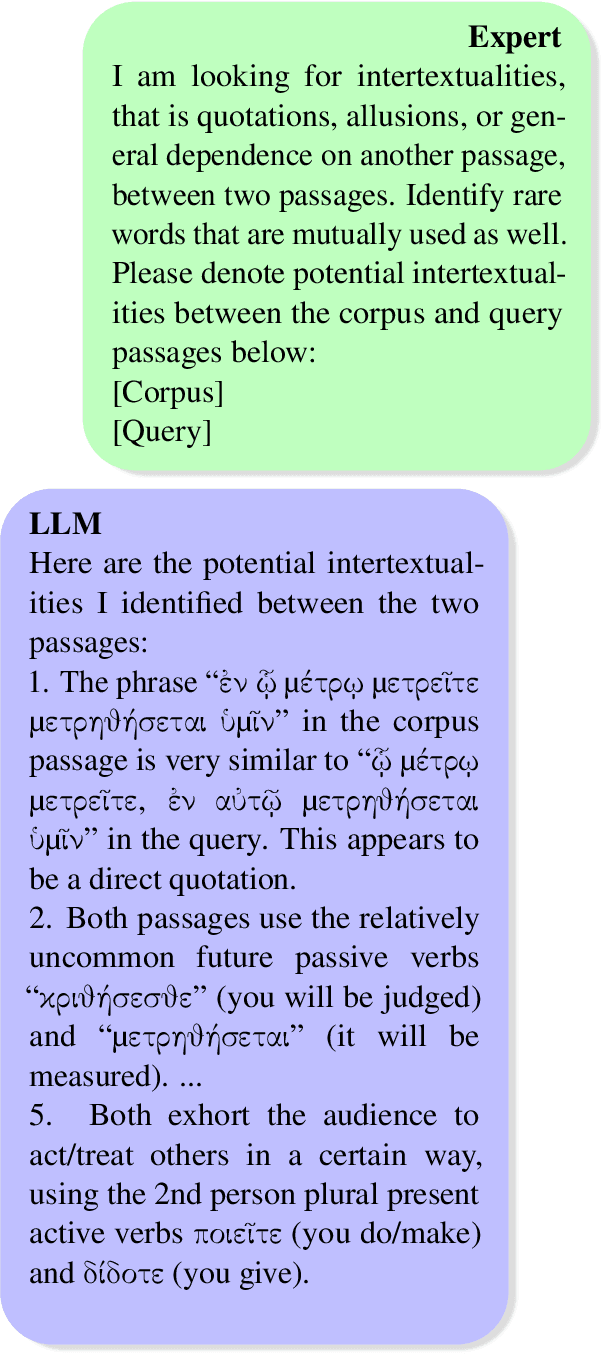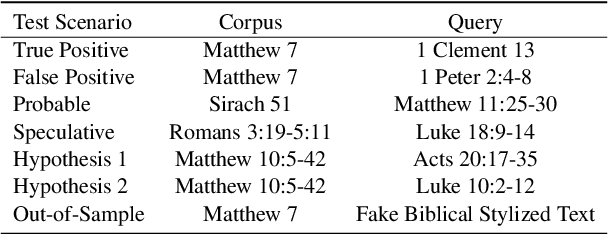Lindsey Roberts
Investigating Expert-in-the-Loop LLM Discourse Patterns for Ancient Intertextual Analysis
Sep 03, 2024



Abstract:This study explores the potential of large language models (LLMs) for identifying and examining intertextual relationships within biblical, Koine Greek texts. By evaluating the performance of LLMs on various intertextuality scenarios the study demonstrates that these models can detect direct quotations, allusions, and echoes between texts. The LLM's ability to generate novel intertextual observations and connections highlights its potential to uncover new insights. However, the model also struggles with long query passages and the inclusion of false intertextual dependences, emphasizing the importance of expert evaluation. The expert-in-the-loop methodology presented offers a scalable approach for intertextual research into the complex web of intertextuality within and beyond the biblical corpus.
Supporting the Digital Autonomy of Elders Through LLM Assistance
Jul 22, 2024Abstract:The internet offers tremendous access to services, social connections, and needed products. However, to those without sufficient experience, engaging with businesses and friends across the internet can be daunting due to the ever present danger of scammers and thieves, to say nothing of the myriad of potential computer viruses. Like a forest rich with both edible and poisonous plants, those familiar with the norms inhabit it safely with ease while newcomers need a guide. However, reliance on a human digital guide can be taxing and often impractical. We propose and pilot a simple but unexplored idea: could an LLM provide the necessary support to help the elderly who are separated by the digital divide safely achieve digital autonomy?
 Add to Chrome
Add to Chrome Add to Firefox
Add to Firefox Add to Edge
Add to Edge